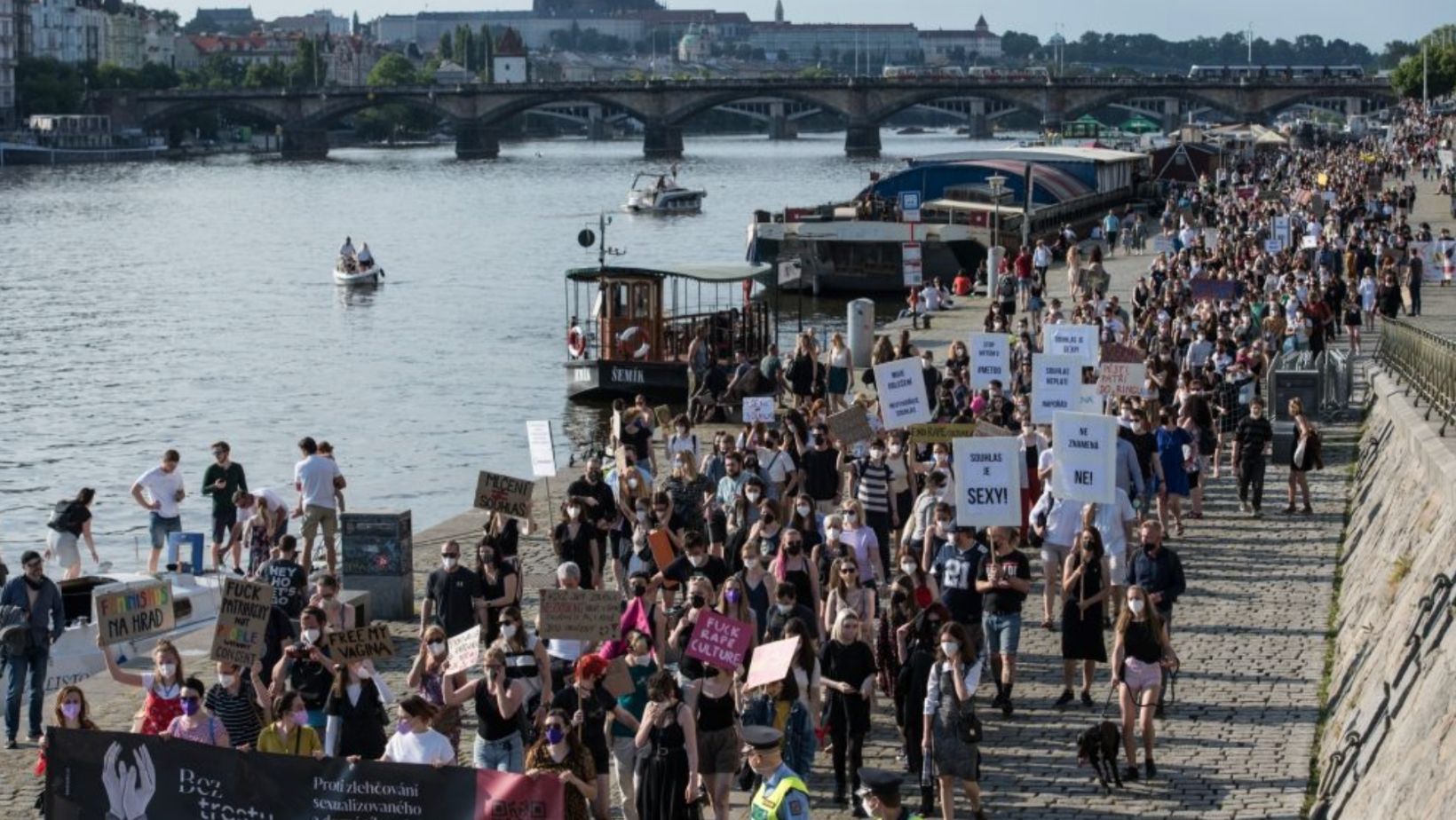About 400 people gathered in Prague on Friday to march from Palackého náměstí to the Justice Ministry to draw attention to what they say is insufficient punishment for perpetrators of sexual and domestic violence in the Czech Republic.
The legal definition of rape under Czech law requires violence or the threat of violence, or abuse of the victim’s inability to defend themselves.
Campaigners argue that this definition is far too narrow and contributes to the tiny number of rapes that are reported in the country.
It is estimated that about 12,000 rapes are committed each year in the Czech Republic, according to Johana Nejedlová, the founder of Konsent, a non-profit organization campaigning against sexual violence, but only about 600 of these are reported. A fraction of these – only 78 cases in 2019 – end in successful prosecutions.
Konsent, together with Amnesty International and the women’s rights non-profit group Česká ženská lobby (Czech Women’s Lobby), are calling on Czech politicians to support a bill expanding the definition of rape. “We are asking for a new definition of rape that includes lack of consent as opposed to criminalizing only the use of violence,” said Nejedlová.
About 90% of rapes in the Czech Republic are committed by either partners, family members or someone the victim knows, according to Nejedlová. “A frequent narrative we hear is a woman telling her partner she does not want to have sex with him, but he goes ahead.”
The country’s attitude to gender-based or sexual violence can be outlined in numbers. Eurobarometer’s 2016 report on gender-based violence documents that almost a quarter (24%) of Czech respondents saw forced sex with a partner as something that shouldn’t be against the law.
When it comes to rape, some Czechs (17%) considered it justified in some cases, such as when the person doesn’t fight back or if they were flirting beforehand. 57% of Czech respondents also thought that women are more likely to be raped by a stranger when actually, the World Health Organisation (WHO) states that in all countries the perpetrator is more likely to be someone the victim knows.
These attitudes are also mirrored in Czech law. The legal definition of rape in the country defines the act as coercion to sex “by violence or threat of violence or threat of other serious harm” and “[the abuse of] his/her inability to defend him/herself for such purpose”.
In a time when many European countries are moving to a definition of rape based on the lack or withdrawal of consent, the Czech definition, based on the assumption of force or violence, is quickly becoming outdated.
Support Prague Morning!
We are proud to provide our readers from around the world with independent, and unbiased news for free.
Our dedicated team supports the local community, foreign residents and visitors of all nationalities through our website, social media and newsletter.
We appreciate that not everyone can afford to pay for our services but if you are able to, we ask you to support Prague Morning by making a contribution – no matter how small 🙂 .





